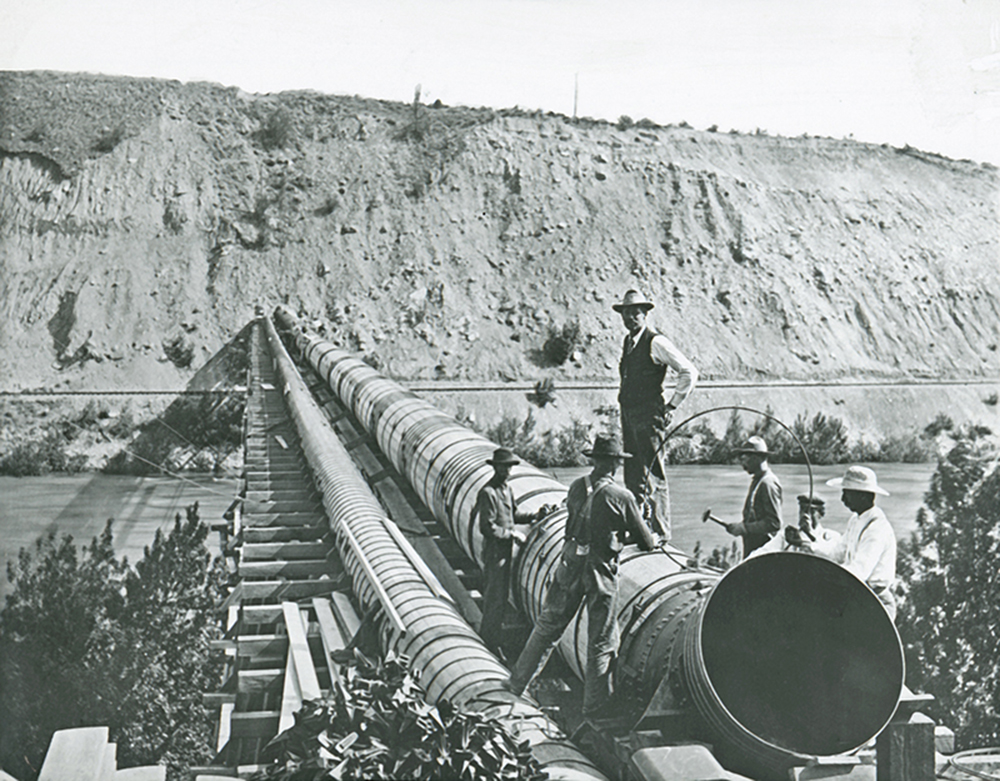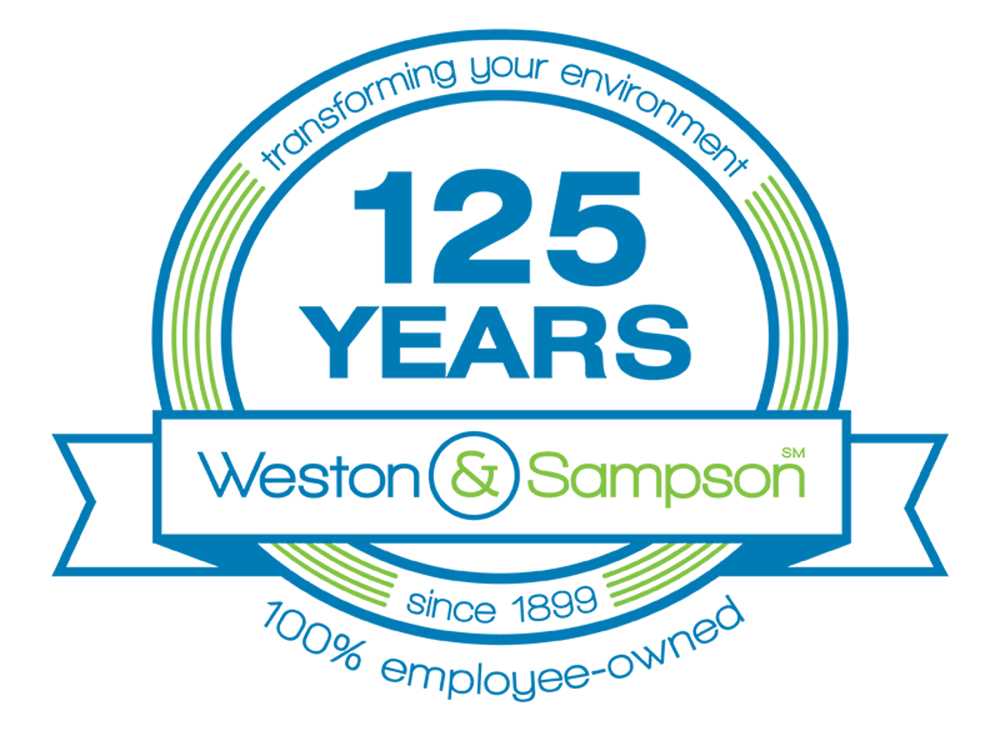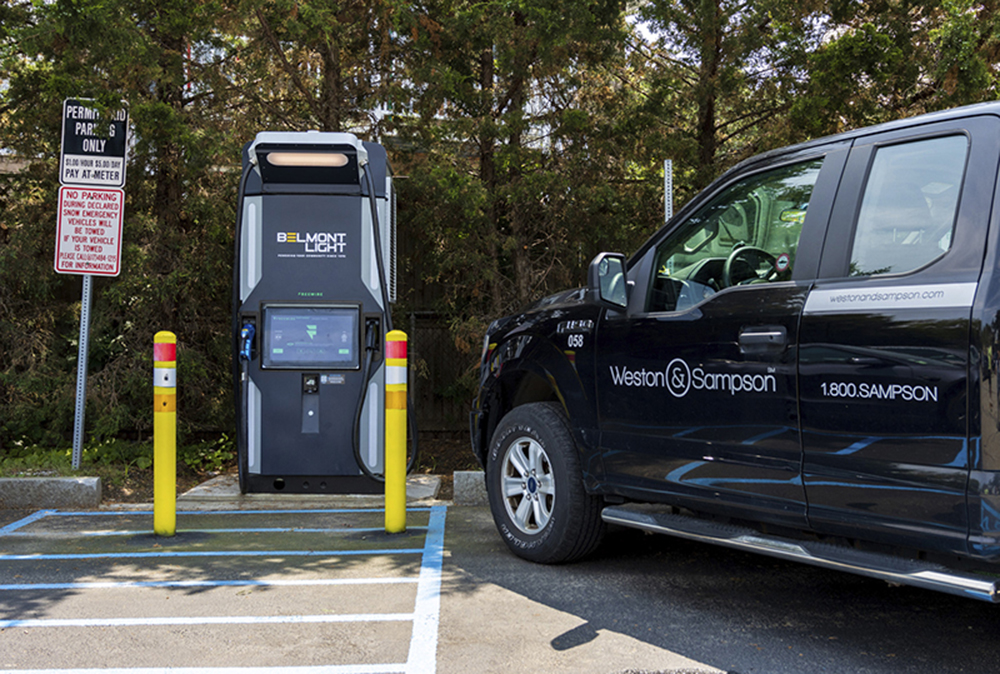Weston & Sampson wastewater and engineering
celebrates 125 years

 Boston, MA Weston & Sampson traces their origins back to 1899, when Robert Spurr Weston first established a consultancy at 14 Beacon St. downtown. A pioneer in the U.S. wastewater treatment industry, Robert Spurr Weston and other engineering professionals studied various water purification system designs and stream pollution issues. He also served on the Massachusetts state board of health and the imperial board of health of Germany.
Boston, MA Weston & Sampson traces their origins back to 1899, when Robert Spurr Weston first established a consultancy at 14 Beacon St. downtown. A pioneer in the U.S. wastewater treatment industry, Robert Spurr Weston and other engineering professionals studied various water purification system designs and stream pollution issues. He also served on the Massachusetts state board of health and the imperial board of health of Germany.
George Sampson, after serving with the U.S. Bureau of Reclamation, worked as an assistant engineer for Leonard Metcalf, William Wheeler, and Robert Weston on several projects around the country before teaming up with Weston to form Weston & Sampson in 1916. Together, they were instrumental in developing innovative approaches to the new science of water treatment. Much of the pioneering work they and their contemporaries performed is considered groundbreaking. In fact, the engineering practices fostered by Robert Spurr Weston and George Sampson continue to this day as the basis of many treatment processes.

 In 2002, long-time president Leo Peters ensured that Weston & Sampson would remain a generational, employee-owned company by selling his shares to a group of senior employees instead of selling the firm on the open market. The employee ownership group subsequently increased, and in 2014, an Employee Stock Ownership Plan (ESOP) was introduced as a means to offer employee ownership to all staff. Peter’s vision of Weston & Sampson as a generational, employee-owned firm was solidified when they transitioned to a 100% ESOP firm in October 2023.
In 2002, long-time president Leo Peters ensured that Weston & Sampson would remain a generational, employee-owned company by selling his shares to a group of senior employees instead of selling the firm on the open market. The employee ownership group subsequently increased, and in 2014, an Employee Stock Ownership Plan (ESOP) was introduced as a means to offer employee ownership to all staff. Peter’s vision of Weston & Sampson as a generational, employee-owned firm was solidified when they transitioned to a 100% ESOP firm in October 2023.
As a 100% ESOP firm, profits are directed back to the company and their employee owners, each of whom has a direct influence on company performance. Companies owned by their employees typically perform better, have a stronger culture, and display greater attention to client needs. Treating staff with professional respect and encouraging them to grow and achieve, recognizing their contributions, and fostering a friendly corporate environment has resulted in low turnover and an increased longevity of team members with the firm. Peters and other former leaders in the organization left behind a legacy of Weston & Sampson as a company where people can spend their entire careers developing their professional skills, working on complex projects, and growing as leaders.
 Throughout the company’s history of changes and improvements — including geographic expansion, new service offerings, and leadership transitions — Weston & Sampson has never wavered on their commitment to a strong corporate culture and people as the highest priority, their focus on serving as trusted advisors to clients, and the mission to protect and improve quality of life. Weston & Sampson directly attributes the growth over the years to these commitments. What began as a one-person water and wastewater engineering firm is now a multi-practice consultancy of close to 900 people up and down the east coast.
Throughout the company’s history of changes and improvements — including geographic expansion, new service offerings, and leadership transitions — Weston & Sampson has never wavered on their commitment to a strong corporate culture and people as the highest priority, their focus on serving as trusted advisors to clients, and the mission to protect and improve quality of life. Weston & Sampson directly attributes the growth over the years to these commitments. What began as a one-person water and wastewater engineering firm is now a multi-practice consultancy of close to 900 people up and down the east coast.
Weston & Sampson continues to strive to create an environment where our owners choose to stay for their entire careers and to make Weston & Sampson an employer of choice for generations to come.
Newmark negotiates sale of 10 Liberty Sq. and 12 Post Office Sq.


Four tips for a smooth 1031 Exchange - by Bill Lopriore

Make PR pop by highlighting unique angles - by Stanley Hurwitz

Five ways to ruin a Section 1031 Like-Kind Exchange - by Bill Lopriore








